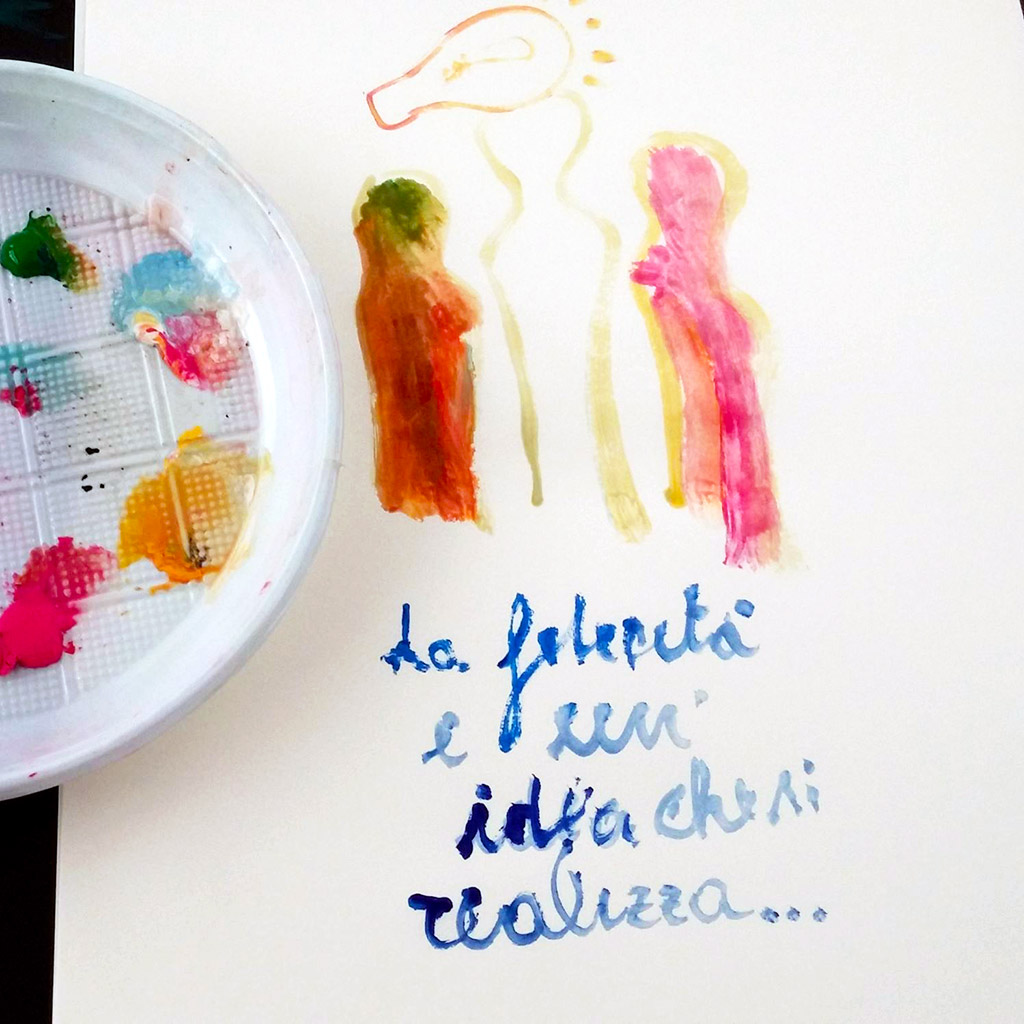The artistic and socialization workshops bring out the resources and potential that everyone possesses. It is partly individual work that takes place, however, in a group context. It's about "doing and participating", knowing and letting oneself be known.
People with psychological distress who are following a therapeutic path in one of the Mental Health Centers of Rome and who wish to move from an institutionalized context to a reality that includes volunteers, family members, operators, and which is open to the territory, can participate in the workshops.
Participation is voluntary.
The photography workshop project was born from the idea of overturning the traditional relationship between mental distress and photography. No more shots that evoke marginalization and decay. In a total change of perspective, the camera entrusted to the user becomes a tool to make contact with one's own deep dimension, a vehicle capable of transmitting experiences and emotions.
The activity is structured as a training course, preparation and training in the use of the camera with professional photographers, and in external exercises in areas of the city chosen for their natural, cultural, and artistic aspects.
For this workshop, as for all the others, the relational component is fundamental, the creation of a cohesive group around a common project.
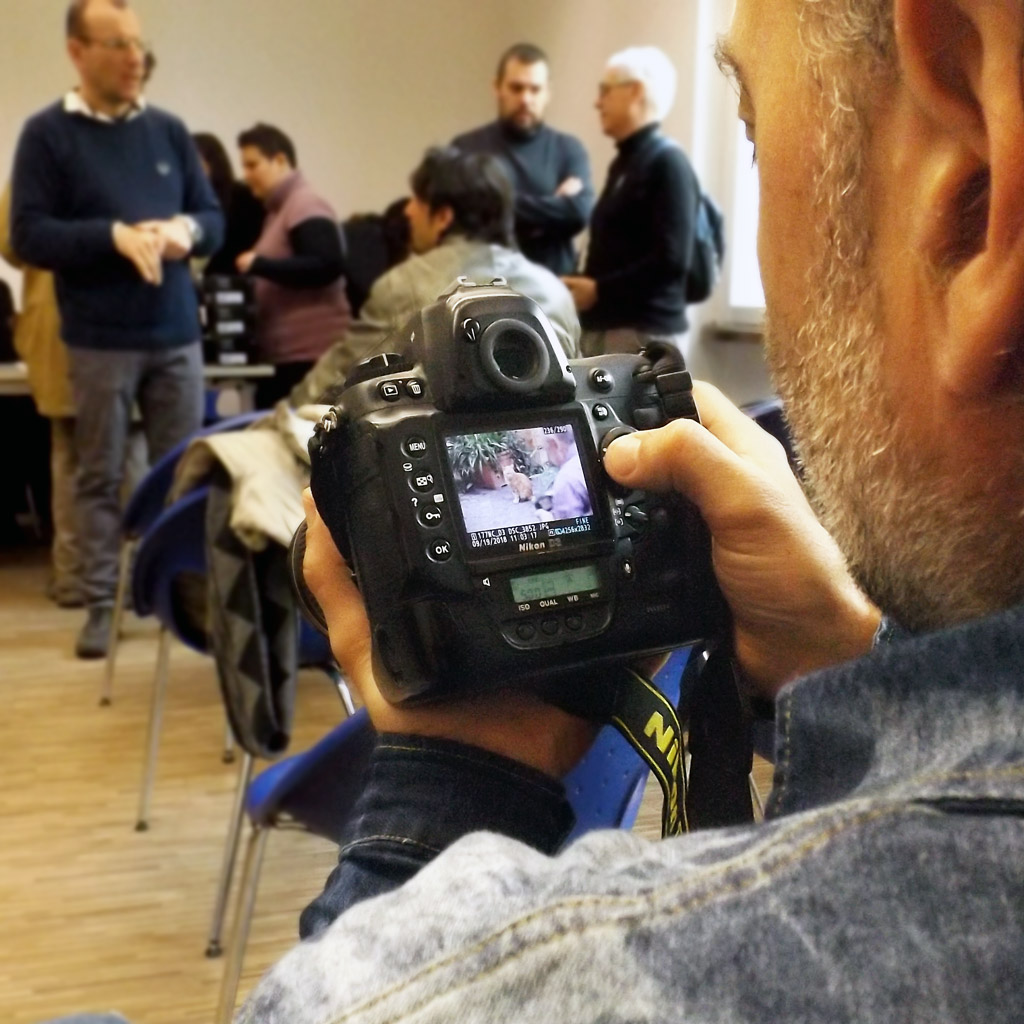
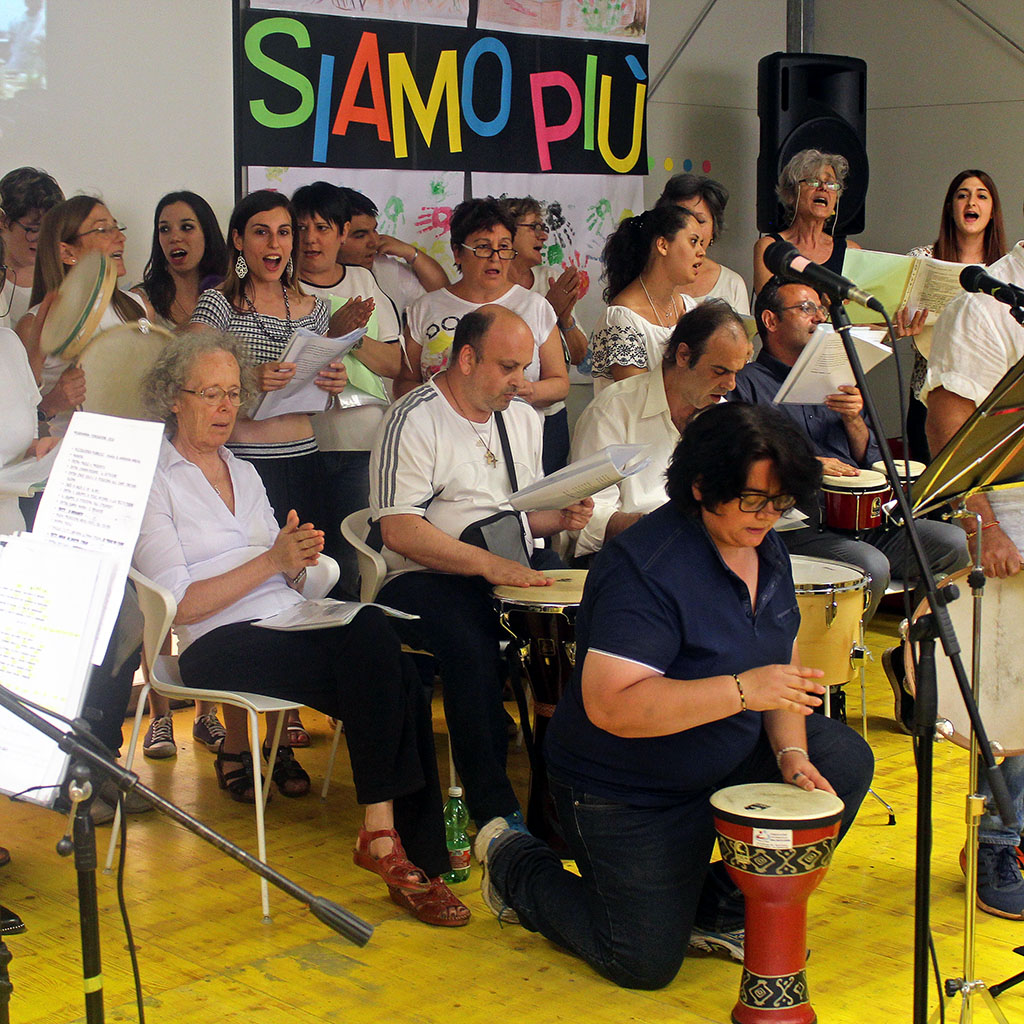
The therapeutic aspects of the artistic proposal concern aggregation, emotions, and neural stimulation. Music, in fact, is essentially a social experience, linked to ceremonies, rituals, and group activities, and it is known that the first "emotions" that reach living beings are of a rhythm-sonic (musical) type, like the maternal heartbeat. With sound and vibrations, the deepest emotional components are reached. It is relatively common to observe aphasic subjects who cannot speak but are able to sing.
The group that meets once a week at the Foundation's headquarters often performs outside during festivals, conferences, and concerts.
The Foundation's painting workshop promotes a form of artistic expression that favors the recovery and growth of the person from an emotional, affective, and relational viewpoint.
Painting as art therapy is one of the first non-verbal techniques used in a clinical setting. Today, it is applied in various sectors, from childhood to rehabilitation, to psychiatry, to geriatrics, to support for terminal patients, to eating disorders. It has the peculiarity of inserting a mediator in the relationship between the user and the surrounding world: the artistic object produced that exists in space and is preserved over time. The contents of the individual's inner world (fantasies, conflicts, desires, needs) are translated into 'real drawn images'.
Participants in our painting workshop also collaborate with students of the two-year specialization in 'Art for Therapy' of the Rome Academy of Fine Arts.
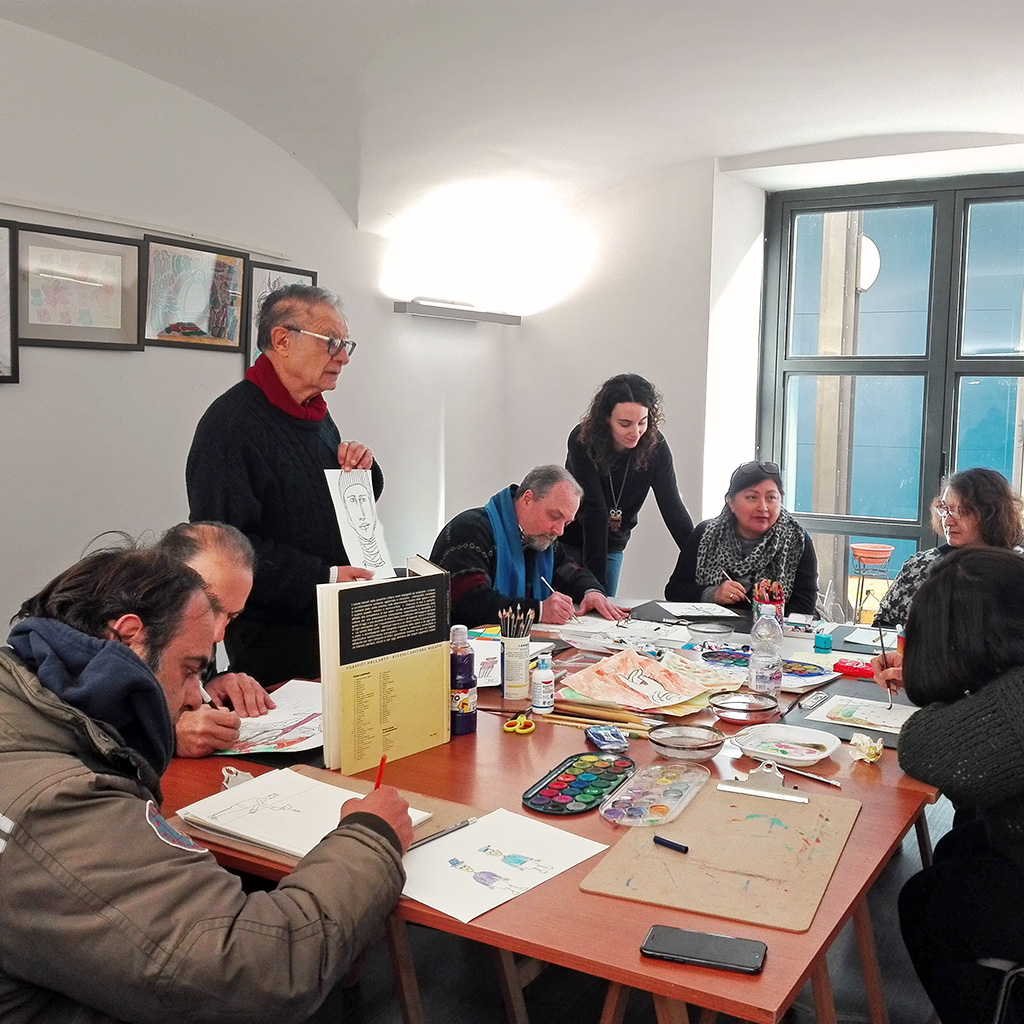
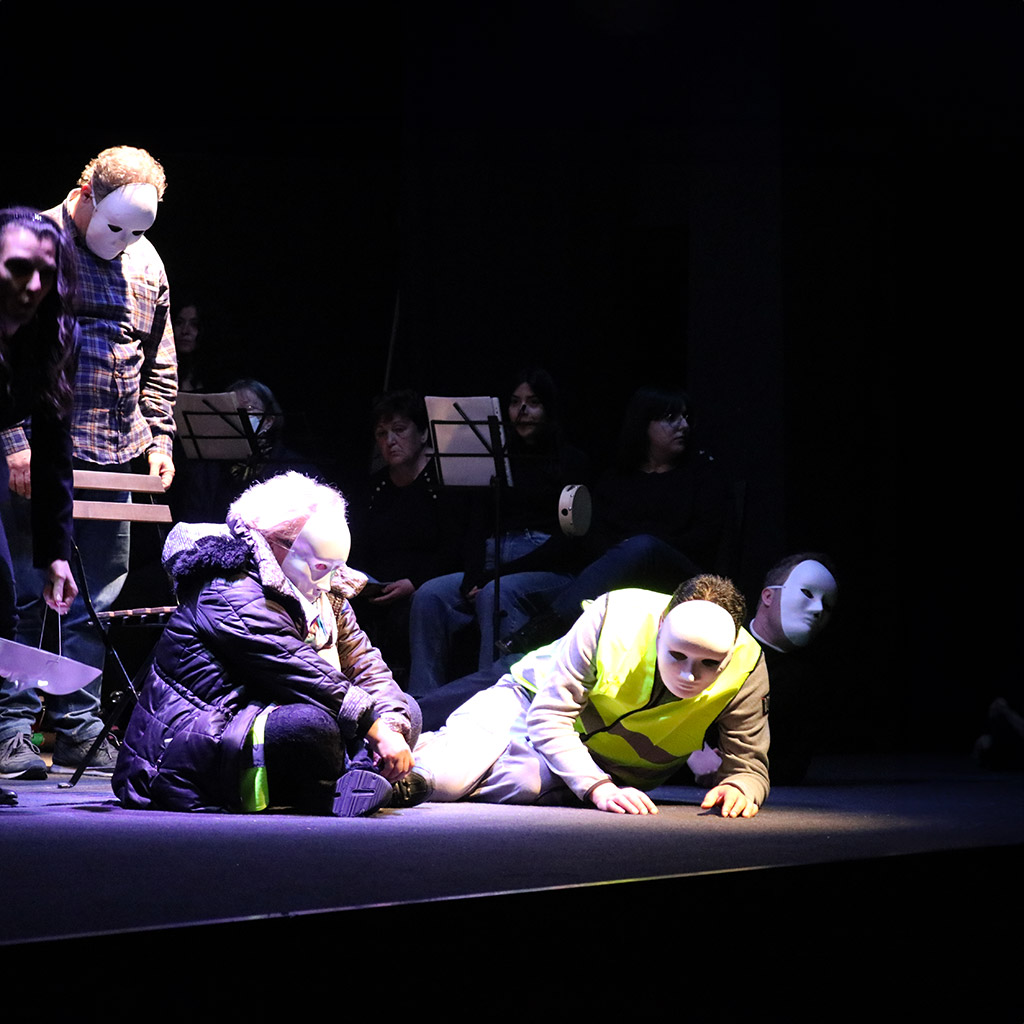
The basic idea is to involve operators, volunteers, and users from different territorial realities, activating a sharing, a dialogue, a comparison, an interaction, to address the issues related to the loneliness that often characterizes people with psychological distress. In 2010, thanks to the contribution of the Province of Rome, through the "Prevention Mille" project, the Foundation created a specific space for theatrical workshops: the tensile structure, a place where people can meet, express their abilities, interact, rebuild identity.
The workshop benefits from the collaboration of a professional leader, actor or director. Participants are called to engage with the techniques available to the actor: vocalization, verbalization, and gestuality. Every year, the activity concludes with the staging of a show, in a theater in Rome. Always an original performance, born from a different trace each time, in which each actor has put something of their own.
Writing is a simple but powerful tool to represent one's emotions. Here, writing becomes a tool for care, a tool with which one can engage. It is not a true writing course with school rules, but a means to freely help people in expressing their own emotions, in listening to others. We use the "game" of writing to speak to oneself and relate to others. Those who follow the course must be able to recount their own experiences, their emotions through tools like the letter, the diary, the Haiku, which is a form of short poetry. People will be free to write just for themselves or also for others.
The third protagonist of this course is a camera, which becomes an observer and thus a narrator in turn of something that is happening.
